Upper respiratory tract infections are one of the most common diagnoses in pediatric and family physician clinics and consequently the cause of pharmacy visits. Respiratory infections are the most common reason for absence from school, work and a common reason for hospital admission.
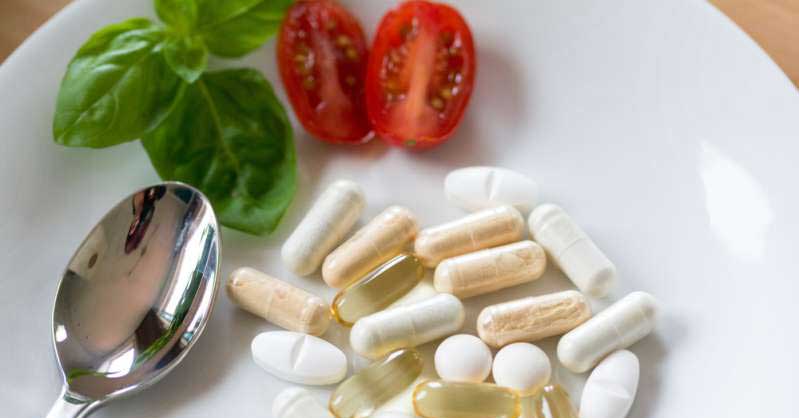
Repetitive respiratory infections are present in what 6% of children . In children by the age of 6, respiratory infections occur as many as 6 to 8 times a year (most in children attending kindergarten). These are mostly upper respiratory infections otitis media, inflammation of the paranasal sinuses, angina, pharyngitis, obstructive laryngitis and inflammation of the upper trachea . In 10-30%, the lower respiratory tract may also be affected, more often in infants.
Respiratory infections mostly occur goods and such can be treated on an outpatient basis.
As many as 80 to 90% of respiratory infections are of viral origin.
Treatment is mostly symptomatic. To relieve symptoms, antipyretic medications, nasal sprays, throat pills are advised; in any case, it also makes sense to support the immune system with mineral and vitamin supplements, probiotics, amino acids, plant extracts and other products. Only some of these products are supported by well-conducted clinical studies confirming clinical efficacy in reducing the number of respiratory infections. Antibiotics are indicated only in bacterial infections confirmed by investigations.
The main function of the immune system is to recognize and remove foreign bodies , especially microbes that invade the human body. Immunomodulation regulates the functioning of the immune system and so we make it easier for the body to beat the microbes and thus reduce the frequency of infections. Due to the complexity of the immune system and its gradual maturation in childhood, it is important to choose substances that do not have a stimulating effect on one part of the immune system, but at the same time have an inhibitory effect on another part.
NATURAL IMMUNOMODULATORS!
Biologically active polysaccharides (eg beta-glucans) are one of the most researched natural immunomodulators s pluripotent mode of action.
Studies confirm that they have immunomodulatory, anti-inflammatory and anti-infective effects and are advised as an effective therapy in the prevention and control of respiratory infections.
They are most often isolated from fungi or cereals. Greater immunomodulatory effect have those beta-glucans that are isolated from fungi. Chemically, these are glucose homopolymers to which ligands are linearly or branched via (1-3) BetaD or (1-6) -BetaD glycosidic bonds. They have very few known side effects and are safe to use even in children from 1 year of age and individuals with various types of allergies.
Immunoglucan is an isolate of the beech oyster mushroom (Pleurotus ostreatus) and is a complex of natural, insoluble, biologically active polysaccharides. Along with the addition of vitamin C, it has been shown as an effective method for the prevention of viral infections of the upper respiratory tract in children, adults and also in athletes after strenuous exercise.
It achieves an immunomodulatory effect by the ability to activate receptors in Peyer's patches that recognize this beta-glucan molecule as foreign. Immunoglucan it acts on non-specific immunity by activating neutrophils, monocytes, natural killer cells and macrophages, as well as on specific immunity where it activates specific T and B lymphocytes and stimulates the formation of specific antibodies. This was also confirmed by Jesenak and colleagues in a double-blind randomized study showing complete absence of respiratory infections in 36% of children who took Imunoglucan P4H regularly for six months (71% more healthy children compared to placebo). At the same time, over the duration of the study (6 months of therapy and 6 months of follow-up), children taking Imunoglukan P4H had a 52% lower incidence of lower respiratory tract infections than children receiving placebo (vitamin C).
Vitamin C , received by children in the control group, did not have a significant immunomodulatory effect, but the researchers believe that the combination of Imunoglucan with vitamin C has a beneficial effect on the prevention of respiratory infections.
Jesenak notes similarly in a 2017 survey.
Summarized clinical evidence supports the use of beta glucan as a therapeutic and preventative approach in the prevention and management of recurrent respiratory infections in children and adults.
Active health care through diet, physical activity, sleep and the use of proven dietary supplements is important for a strong immune system. Preventive use of products Immunoglucan P4H it is reflected in a reduced incidence of respiratory infections and, consequently, a greater number of healthy children, less use of antibiotics and less absence from work, school or kindergarten.







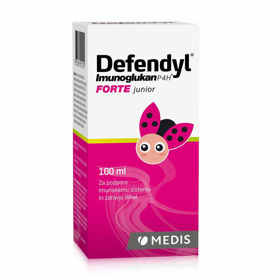
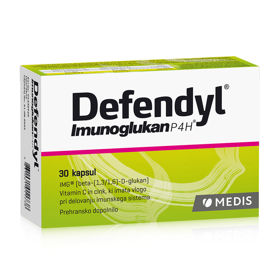
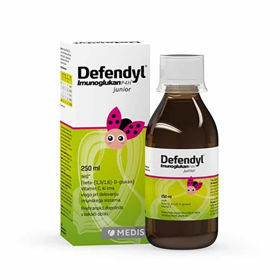
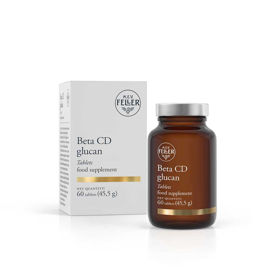

 Facebook
Facebook
 Instagram
Instagram
 info@moja-lekarna.com
info@moja-lekarna.com

